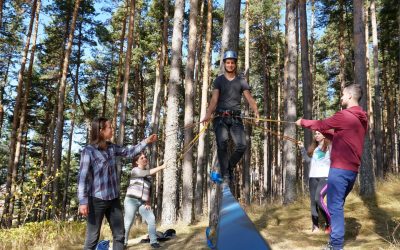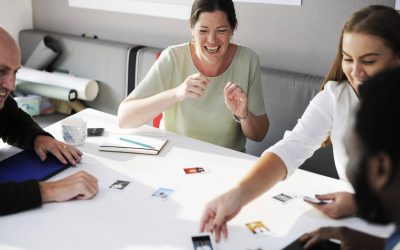NEWS
Problem solving and decision making. Training delivered as part of ELEVATE project
Maja Wąsała
Monika Grzesiak-Chmura
September 30, 2019
On September 23th-27th, 2019, as part of the ELEVATE project, we delivered a training entitled “Problem solving and decision making” for the Dorea Educational Institute in Cyprus as our training assignment activity.
Its goal was to improve the competences of participants in the area of coping with difficult situations and to raise skills useful in conflict resolution and decision making.
The training strategy was obvious.
The only way to deal with a difficult situation is to find yourself in it and live through it with the support of trainers. Participants helped us in this, defining expectations in a way that could be called relaxing. At training on difficult situations, they expected relaxation, less stress, opportunities to meet other participants and case studies that would show them such situations and various ways of dealing with pressure.
What a great starting point for trainers.
We decided to follow these unclear expectations and during the first two days that we called BONDING and DISCOVERING, we offered participants experiences in which on the one hand they could feel what relaxation means and less stress, and on the other hand feel and experience conflict-related tension in a group.
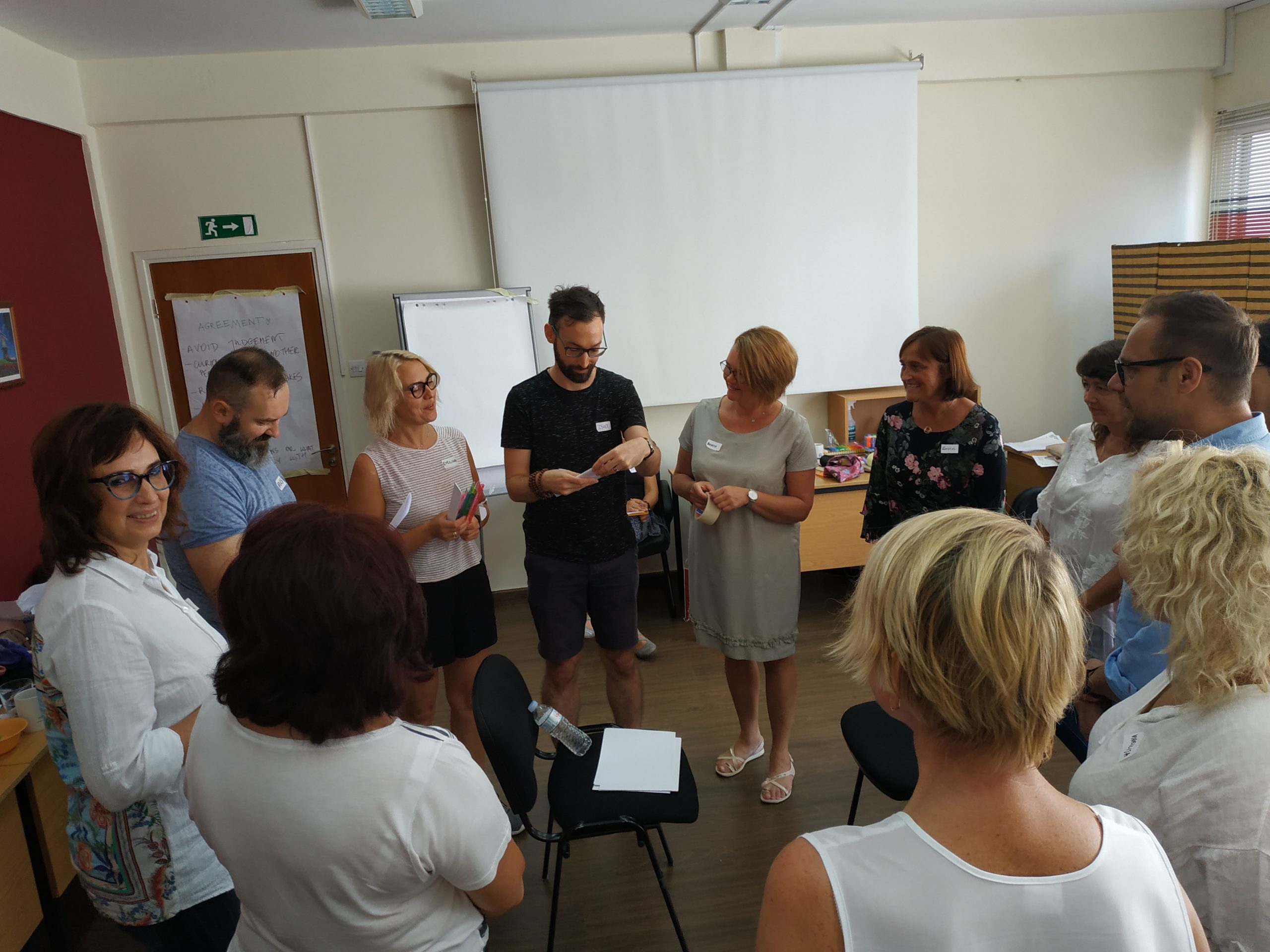
We decided to follow these unclear expectations and during the first two days which we called BONDING and DISCOVERING, we offered participants experiences in which on one hand they could feel what relaxation means and less stress, and on the other feel and experience conflict-related tension in a group.
What could they experience?
Stressful silence.
Energizers in excess.
The task of building a bridge from sheets of paper and pencils.
Princess and dragons games.
On the second day, the conflict reached the summit. It was clear to everyone that we could not go any further until we resolve the conflict that is currently underway in the training room. For us as trainers, the most recognizable determinant of conflict in the group was physical fatigue after the second day of training.
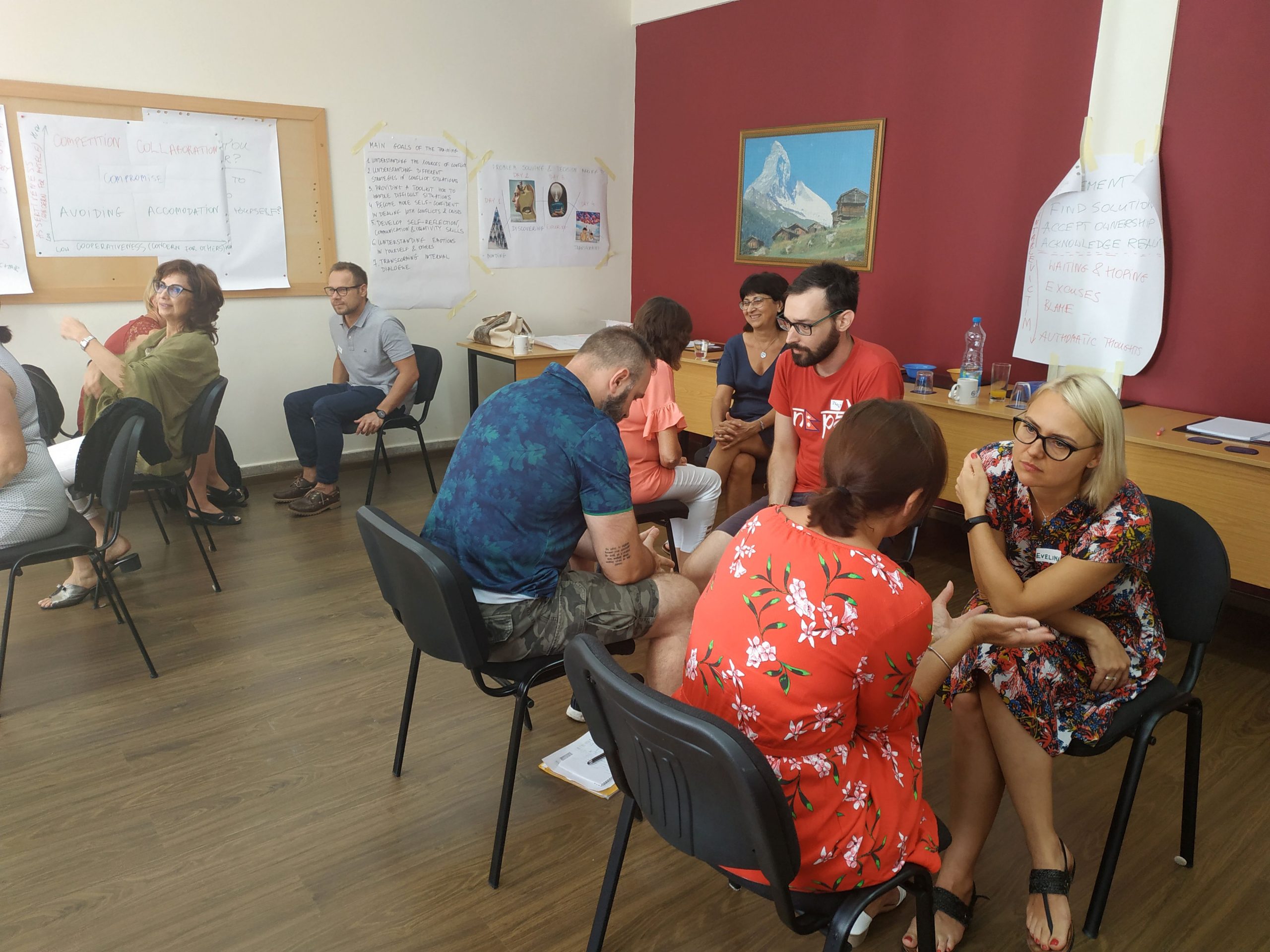
The only way to deal with a difficult situation is to live through it with the support of trainers.
We used simple but effective tools to work with this conflict.
I language, coaching conversation, work in a circle setting, open questions, verification of expectations, constructions taken from the improvisation theater in the form of “Yes and …” sentences, reflection and paraphrase.
Working persistently with the Kolb cycle, we tested each of these tools in transfer.
We created from the conflict in the training room a lively, fiery situation that participants could explore on their own skin.
Both the third day under the name EXPLORING and the fourth day under the name TRANSFORMING were conflict resolution and testing of freshly used tools. Participants will have the opportunity to review the effectiveness of their training in everyday life.
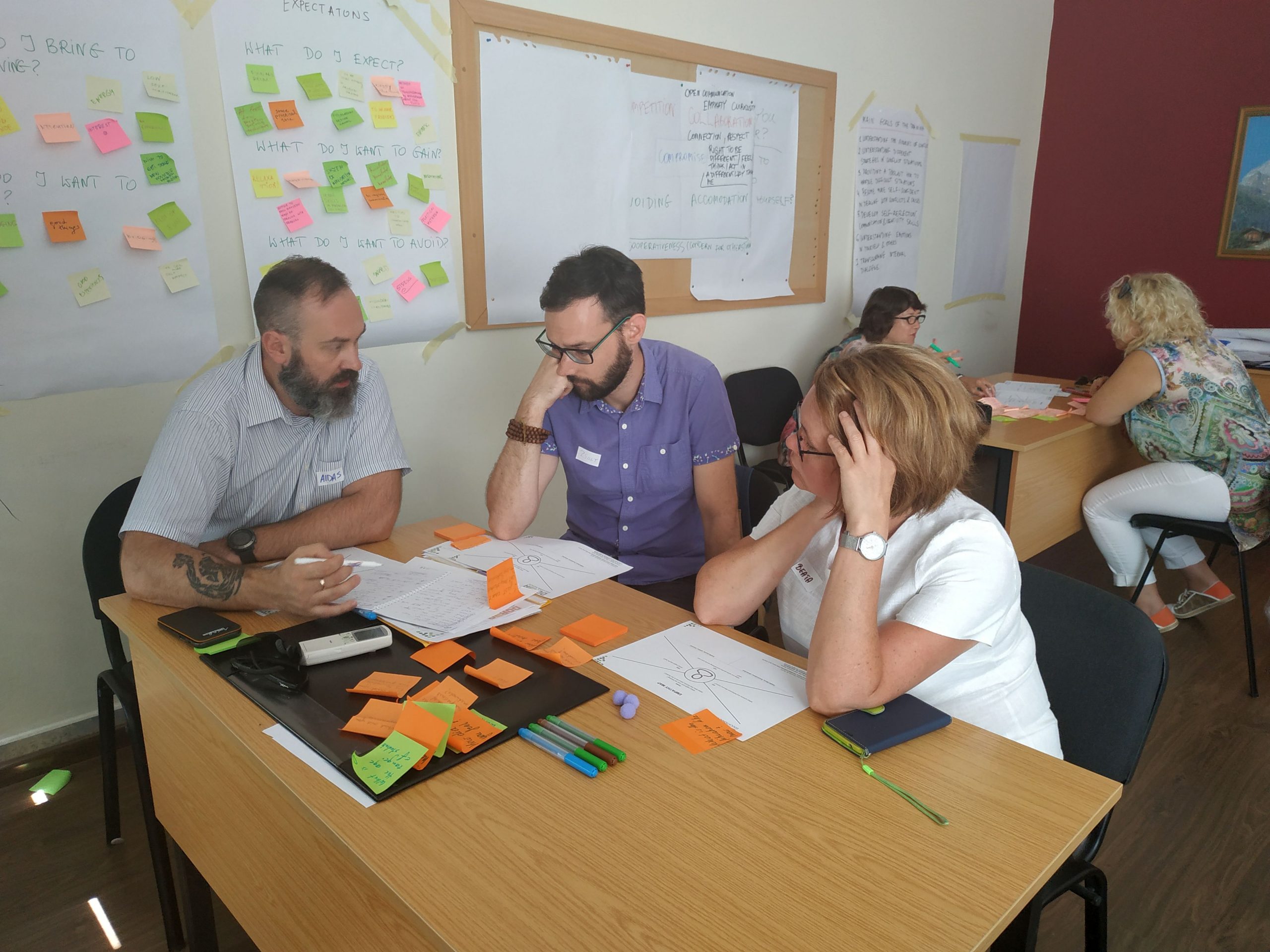
In addition, difficult situations that participants brought with them as cases, could be solved in the Design Thinking process, carried out on the fifth day, which we called PRACTICING for training purposes.
In addition, difficult situations that participants brought with them as cases, could be solved in the Design Thinking process, carried out on the fifth day, which we called PRACTICING for training purposes.
Creating conflict in the training room requires a lot of mindfulness from the trainers. We know from autopsy that conflict will always happen. The trick is to spot it and make the participants aware of his potential in conscious facing a difficult situation.
That was the goal of the training.
To meet in a difficult situation as a situation full of potential, not a threat.
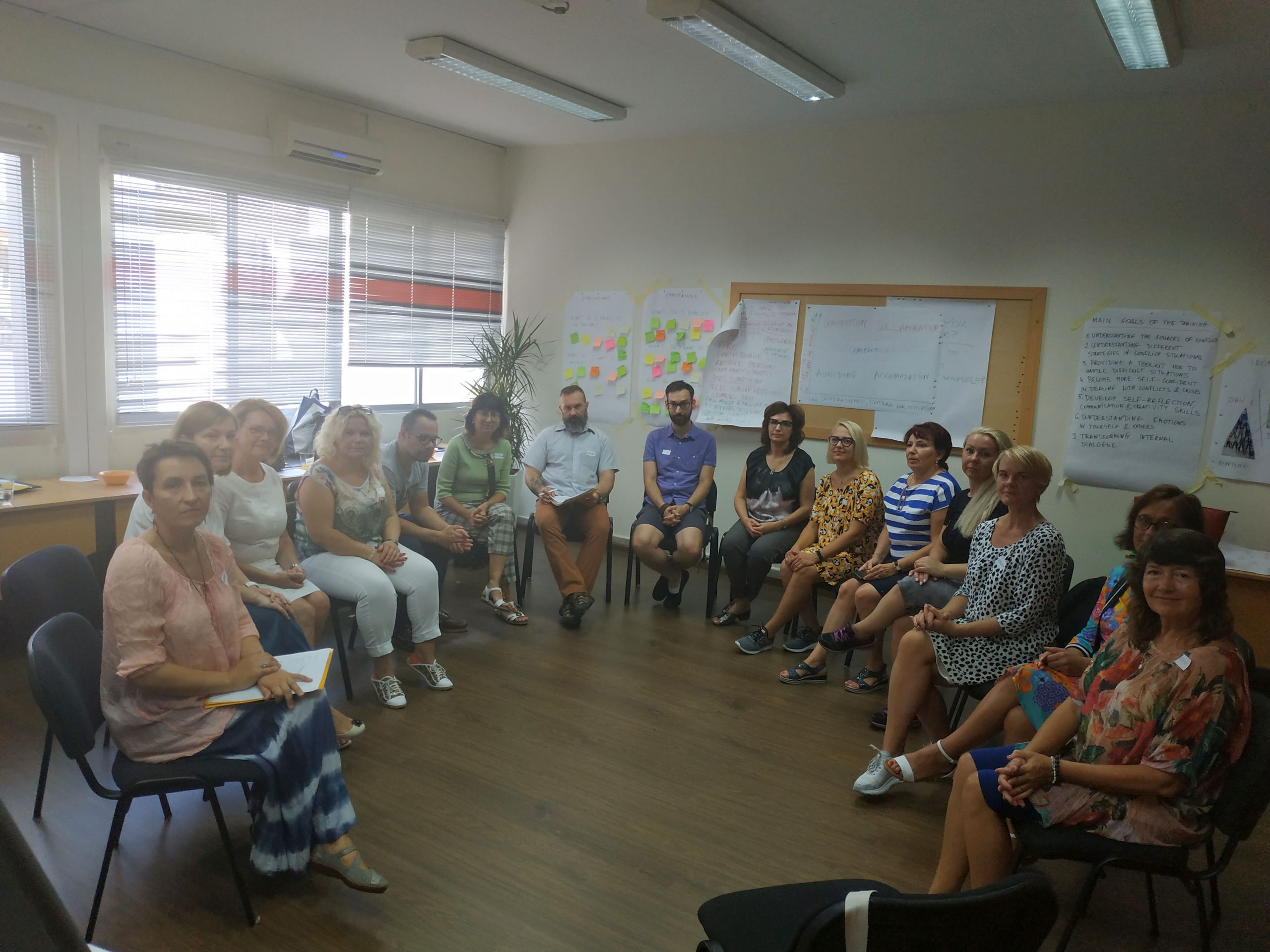
That was the goal of the training. To meet in a difficult situation as a situation full of potential, not a threat.
Conducting a 5-day training for a partner organization (training assignment) allowed us to develop a number of skills crucial in trainer’s job work, such as: creating a training scenario based on assumed goals and learning outcomes, designing activities based on active methods, or conducting training in English for an international group of participants.
We had the opportunity and the possibility to test our working methods in an international environment and get inspired to implement similar training projects in the future. Cooperation with a partner gave us a lot of security as trainers – we had the opportunity to consult the training scenario and proposed methods of working with the group, Dorea also took care of the full training logistics.
We returned full of inspiration and ideas for further training projects and established a personal relationship with our partner, which will certainly result in further cooperation.
Projekt współfinansowany w ramach programu Unii Europejskiej Erasmus+ (Akcja 1 Mobilność edukacyjna, Mobilność kadry edukacji dorosłych, numer umowy 2018-1-PL01-KA104-049658).

